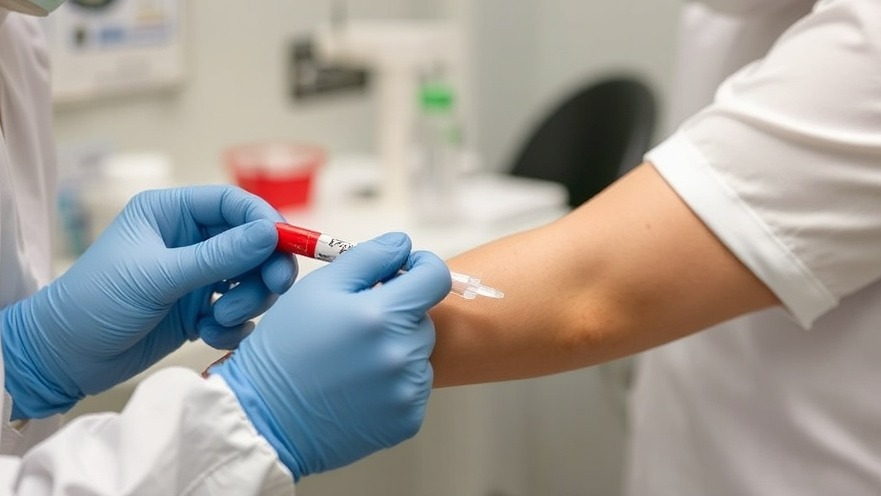
The Rise of Accessible Diagnostics: A New Era in Heart Disease Risk Assessment
As healthcare evolves, so too does our approach to diagnosing and managing diseases. Heart disease remains a leading cause of mortality worldwide, yet traditional diagnostic methods can be cost-prohibitive and inaccessible for many patients. Recent developments in molecular blood screening present a promising solution, potentially transforming how concierge health practitioners evaluate heart disease risk.
What is Molecular Blood Screening?
Molecular blood screening involves analyzing specific biomarkers in the blood to assess an individual's risk of developing heart disease. Unlike conventional methods that primarily focus on age and personal medical history, this technique aims to identify underlying biological markers that could predict cardiovascular health. With advancements in technology, these screenings can now be performed more affordably and efficiently.
A Glimpse into the Future of Cardiology
The implications of affordable molecular screening for heart disease are extensive. Practitioners who adopt this technology can provide a more personalized approach to patient care, emphasizing prevention rather than reaction. For instance, a study highlighted the use of molecular diagnostics to detect early signs of inflammation and other risk factors, allowing professionals to implement targeted lifestyle changes or treatments before symptoms arise.
Creating Value Through Early Detection
The value of early detection cannot be overstated. Studies indicate that identifying heart disease risk factors early can lead to significant improvements in patient outcomes. Healthcare costs could be reduced dramatically. With concierge practices often leading the way in patient-centered care, incorporating molecular blood screening could enhance services offered. It aligns well with the model of proactive health management these practices champion.
Considerable Advantages for Concierge Practices
Implementing this innovative technology grants concierge health practitioners several advantages:
Enhancing Patient Engagement: Through accessible diagnostics, patients are empowered to take charge of their health, leading to greater engagement and compliance.
Building Trust: By employing cutting-edge technologies, practitioners solidify their reputation as leaders in providing state-of-the-art care.
Diverse Treatment Options: Insights gained from molecular screening allow for tailored treatment approaches, addressing unique patient needs and preferences.
Challenges and Considerations
While the benefits are promising, practitioners must also navigate potential challenges such as regulatory hurdles and the integration of new technology into existing workflows. Ensuring that staff is adequately trained and that patients understand the process and results are essential steps to smooth implementation.
Regulatory Perspective: The Road Ahead
As with any new diagnostic tool, regulatory scrutiny is crucial. The path to approval requires rigorous testing to ensure accuracy and reliability. Understanding the evolving regulatory landscape will be vital for practitioners as they consider incorporating molecular blood screening into their practices.
Conclusion: Embracing the Future of Patient Care
For concierge health practitioners eager to stay ahead, integrating accessible and affordable molecular blood screening into their diagnostic repertoire may play a crucial role in enhancing patient outcomes. As we lean into this new era in healthcare, it is vital to remain informed and adaptable. By embracing these advancements, practitioners can position themselves as champions of innovative patient care, ultimately driving better health in their communities.
If you're interested in learning more about how molecular blood screening can enhance your practice, reach out to your local medical tech provider or continue researching the evolving landscape of cardiovascular diagnostics. The future of patient care is rapidly advancing, and those who stay informed will be well-equipped to lead the way.
 Add Row
Add Row  Add
Add 






Write A Comment